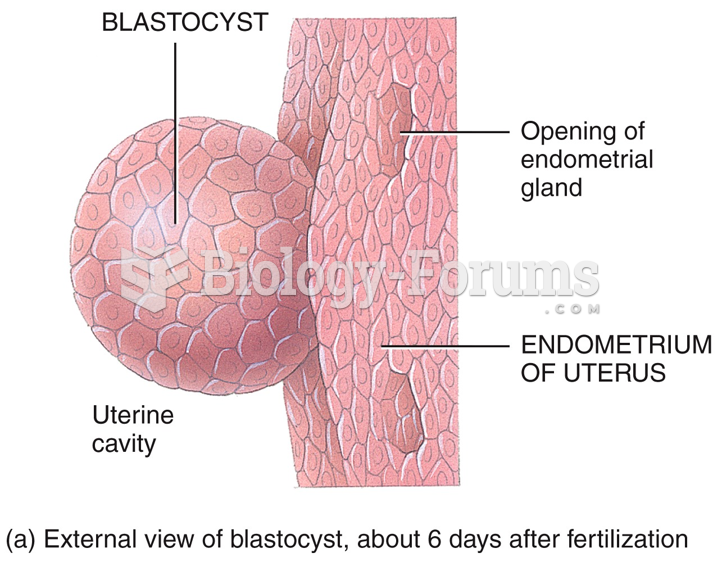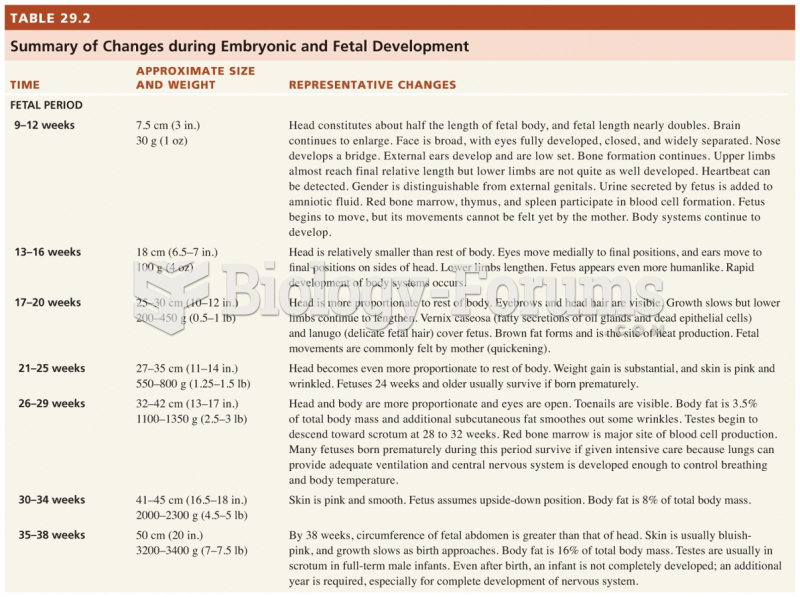|
|
|
Illicit drug use costs the United States approximately $181 billion every year.
In the United States, an estimated 50 million unnecessary antibiotics are prescribed for viral respiratory infections.
People about to have surgery must tell their health care providers about all supplements they take.
About one in five American adults and teenagers have had a genital herpes infection—and most of them don't know it. People with genital herpes have at least twice the risk of becoming infected with HIV if exposed to it than those people who do not have genital herpes.
Only one in 10 cancer deaths is caused by the primary tumor. The vast majority of cancer mortality is caused by cells breaking away from the main tumor and metastasizing to other parts of the body, such as the brain, bones, or liver.







